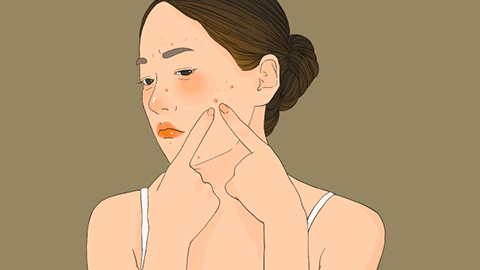How to properly regulate cold-damp-heat constitution
To regulate a constitution characterized by cold, dampness, and heat, it is essential to simultaneously dispel cold, eliminate dampness, and clear internal heat. This can generally be achieved through adjusting dietary habits, maintaining moderate exercise, improving living environment, adopting traditional Chinese therapies, and keeping a regular daily routine. If in doubt, it is advisable to consult a healthcare professional early. Specific methods are as follows:

1. Adjust diet: Reduce intake of raw, cold, greasy, and spicy foods to avoid aggravating cold-dampness and damp-heat conditions. Consume more spleen-strengthening and dampness-resolving foods such as Chinese yam and poria, heat-clearing foods like mung beans and winter melon, and cold-dispersing ingredients such as ginger and Sichuan pepper. Aim for warm, light, balanced, and nutritious meals.
2. Maintain moderate exercise: Choose moderate-intensity activities such as brisk walking, jogging, or yoga, and practice them for about 30 minutes daily. Exercise promotes blood and qi circulation, helping the body expel cold-dampness and damp-heat, and prevents stagnation of dampness caused by prolonged sitting.
3. Improve living environment: Avoid long-term exposure to damp and cold environments; keep living spaces well-ventilated and dry. Use dehumidifiers during rainy weather, and regularly air out clothes and bedding to reduce environmental dampness affecting the body.
4. Use traditional Chinese therapies: Regular moxibustion on acupoints such as Pishu (BL20), Weishu (BL21), and Guanyuan (CV4) can help dispel cold and dampness through warming effects. Cupping therapy may also be used to unblock meridians and promote the elimination of damp-heat pathogens.
5. Maintain a regular sleep schedule: Avoid staying up late and cultivate the habit of going to bed early and waking up early. Nighttime is crucial for metabolic processes and bodily repair. A consistent routine supports healthy spleen and stomach function, enhancing the transformation and transportation of fluids and aiding in the removal of dampness and heat.
Regulating a cold-damp-heat constitution requires long-term commitment rather than quick results. If symptoms such as significant fatigue, abdominal bloating, or worsening thick, greasy tongue coating occur during the process, consult a qualified TCM practitioner. Pay attention to your body's responses in daily life and adjust your regimen according to seasonal changes.




